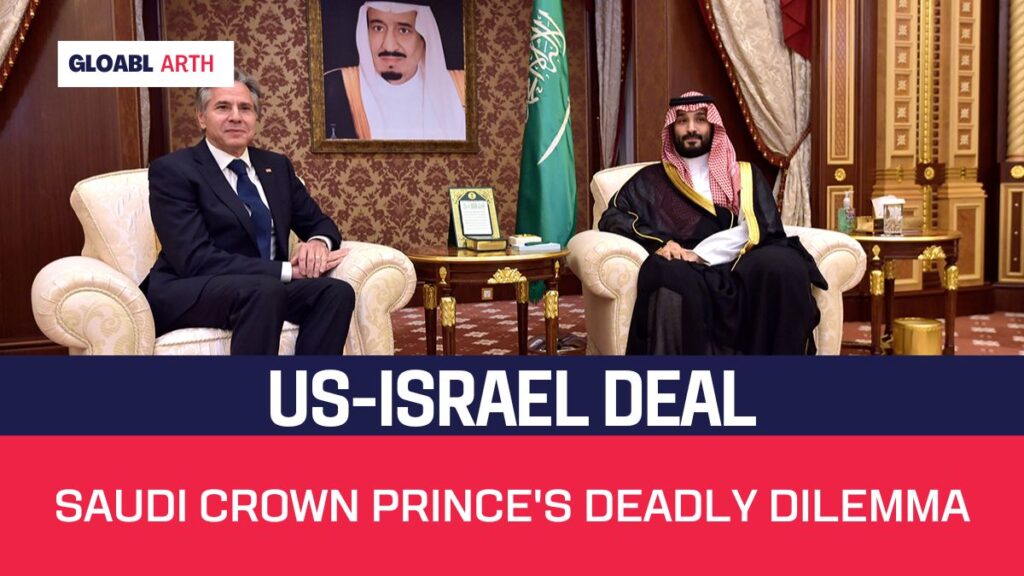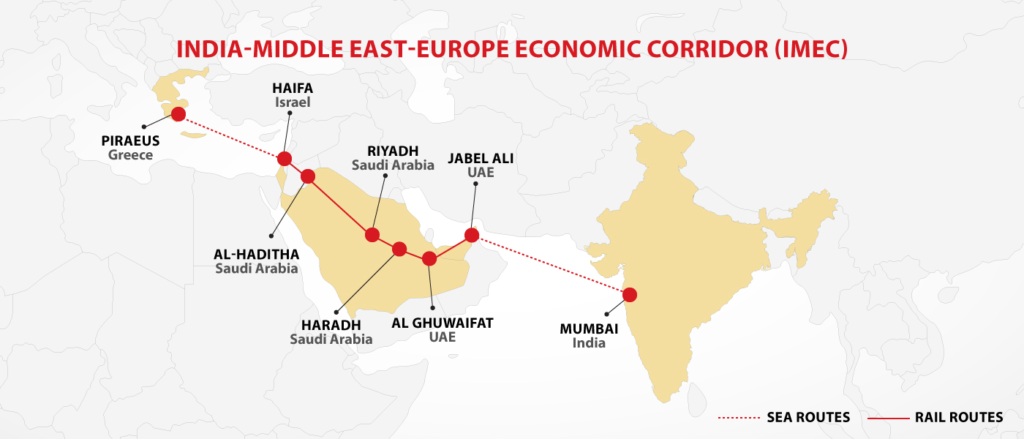Tension Mounts as Saudi Crown Prince Faces Pressure Over US-Israel Deal
Crown Prince Mohammad bin Salman is facing an intense dilemma as the US pressures Saudi Arabia to normalize relations with Israel. The Prince has expressed grave fears for his life, likening the situation to the fate of Anwar Sadat, the former Egyptian leader assassinated after signing a peace deal with Israel. With the potential for significant geopolitical shifts, the world watches as Saudi Arabia navigates this high-stakes situation that could reshape the Middle East.

Crown Prince Mohammad bin Salman faces life-threatening pressure over the US-Israel normalization deal.
In a dramatic and about development, Saudi Crown Prince Mohammad bin Salman (MBS) of Saudi Arabia recently expressed grave fears for his life. According to reports from US media, MBS, during a confidential meeting with three influential American lawmakers, shared his apprehensions about being assassinated if he follows through on a specific demand made by the United States. This startling revelation has sent shockwaves through geopolitical circles, highlighting the intense pressure Saudi Arabia is under to normalize relations with Israel as part of a broader US-led initiative.

The Grand Vision: Connecting Continents
The United States has unveiled an ambitious plan known as the “IMEC Corridor,” which links Europe, the Middle East, and India through a network of trade routes. This project is envisioned as a strategic counter to China’s Silk Road initiative, aiming to reduce Beijing’s influence in global trade. But, the success of this grand vision hinges on one crucial factor: the normalization of relations between Saudi Arabia and Israel.

Now, Saudi Arabia is among the countries that do not officially recognize Israel. This stance aligns with other nations like Pakistan, Iran, and Bangladesh, which refuse to acknowledge Israel as a legitimate state. The US, under the earlier administration of Donald Trump, initiated the Abraham Accords, which saw several Muslim-majority countries, including the UAE, Morocco, and Sudan, normalizing ties with Israel. Now, Washington is turning its attention to Riyadh, urging the Kingdom to follow suit.
A Kingdom Under Pressure
The pressure on the Saudi Crown Prince is immense. As the custodian of the two holiest cities in Islam, Mecca and Medina, the Kingdom holds significant sway in the Muslim world. The US believes that if Saudi Arabia normalizes relations with Israel, other Islamic nations will likely follow. but, this is a difficult path for MBS, who fears that such a move make him a target for extremist groups within and outside his country.

MBS reportedly told the US lawmakers, “They will not spare me, they will kill me, save me,” expressing his deep concern about the potential fallout if he accedes to the US demands. His reference to being “killed” is reminiscent of the fate of Anwar Sadat, the former Egyptian President who was assassinated in 1981 after signing a peace treaty with Israel. Sadat’s assassination by Islamist extremists came as a direct result of his decision to normalize relations with Israel, a decision that was highly controversial in the Arab world at the time.
The Historical Parallel: Anwar Sadat
In 1979, under the mediation of US President Jimmy Carter, Anwar Sadat signed the Camp David Accords with Israeli Prime Minister Menachem Start. This agreement marked the first time an Arab country officially recognized Israel, leading to Egypt becoming the first Arab nation to prove diplomatic relations with the Jewish state. The agreement was met with fierce opposition within Egypt, and Sadat paid the ultimate price when he was assassinated just two years later.
MBS’s fears echo the sentiments that surrounded Sadat’s decision. He is well aware that normalizing relations with Israel could provoke a violent backlash, potentially leading to his assassination. The Crown Prince’s concerns are not unfounded, given the historical precedent set by Sadat’s assassination and the ongoing tensions in the Middle East.
The Geopolitical Implications
The potential normalization of relations between Saudi Arabia and Israel is a significant geopolitical development that could reshape the landscape of the Middle East. If successful, it could pave the way for a more stable and interconnected region, with increased trade and economic cooperation between Europe, the Middle East, and South Asia. But, the risks are equally significant. MBS’s assassination could plunge Saudi Arabia into a terminal crisis, destabilizing the Kingdom and potentially igniting widespread unrest across the Muslim world.
As the Crown Prince weighs his options, the world watches closely. The outcome of this high-stakes geopolitical gamble have far-reaching consequences, not just for Saudi Arabia and Israel, but for the entire Middle East and beyond.
The Road Ahead
MBS is at a crossroads. The decision he faces is nothing short of a life-or-death dilemma. On one hand, normalizing relations with Israel could secure his country’s position in the US-led initiative and bolster Saudi Arabia’s global standing. On the other hand, it could cost him his life and throw his nation into chaos.
As the situation unfolds, it is clear that the coming weeks and months will be critical. The world will be watching to see whether MBS chooses to take the risk and pursue the US’s grand vision or if he opts for a more cautious approach, prioritizing his safety and the stability of his Kingdom over geopolitical ambitions. Whatever the outcome, this issue is sure to dominate headlines and discussions in the international arena for the foreseeable future.




